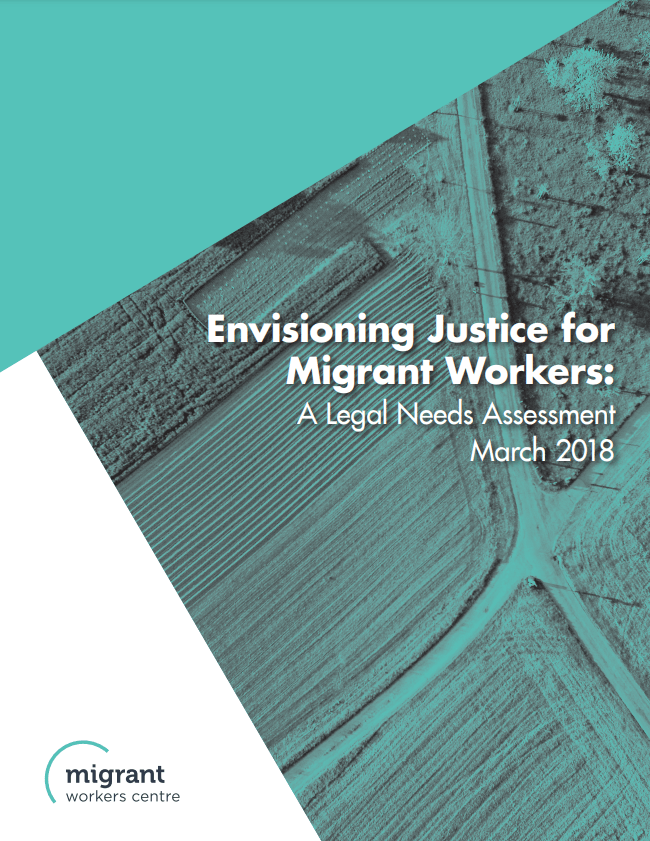Search the Baseline Project
To search the recommendations database, please visit the database main page.
To search the recommendations database, please visit the database main page.

In March 2018, “Envisioning Justice for Migrant Workers: A Legal Needs Assessment” by Alexandra Rodgers was published by The Migrant Workers Centre. The report outlines an examination of the legal needs of migrant workers and the barriers they experience when accessing legal information and services in B.C. Recommendations focus on systemic solutions to enhance migrant workers’ access to legal information and services in in the province.